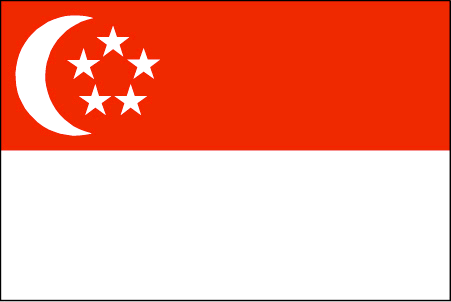 Advising on cross border investment strategies and evolving optimal ownership/jurisdiction structures for investment into a particular jurisdiction which include setting up an International holding company, global sales company, etc.
Advising on cross border investment strategies and evolving optimal ownership/jurisdiction structures for investment into a particular jurisdiction which include setting up an International holding company, global sales company, etc.- Advising and assistance on entity structuring, capital structuring and regulatory approval process in selected jurisdiction
- Assistance in finalizing/review of shareholders, joint venture and other relevant business agreements
- Assistance in finalizing/review of financial projections
- Identifying and enhancing tax and fiscal incentives including obtaining any tax rulings in selected jurisdiction
- Striving to enhance tax credit and income deferral in India. Mergers and acquisitions and due diligences.
Major Countries for Outbound Investments

Africa
South Africa is a middle-income, emerging market with an abundant supply of natural resources; well-developed financial, legal, communications, energy, and transport sectors; a stock exchange that is the 18th largest in the world; and modern infrastructure supporting a relatively efficient distribution of goods to major urban centres throughout the region. Growth was robust from 2004 to 2007 as South Africa reaped the benefits of macroeconomic stability and a global commodities boom but began to slow in the second half of 2007 due to an electricity crisis and the subsequent global financial crisis’ impact on commodity prices and demand. South Africa’s economic policy is fiscally conservative focusing on controlling inflation and attaining a budget surplus. The current government largely follows these prudent policies but must contend with the impact of the global crisis and is facing growing pressure from special interest groups to use state-owned enterprises to deliver basic services to low-income areas and to increase job growth.Tax Regime:
Corporate Tax Rate : 28%
Personal Income Tax Rate : 40%
Sales Tax Rates : 14%

China
China since the early 1990s has increased its global outreach and participation in international organizations. China’s economy has been in the global spotlight ever since it was set on the path of reform and opening up three decades ago. It is more of the case now as the rest of the world pins its hope on China to the rescue of the global economy.
Tax Regime:
a) Resource taxes- It consists of Resource Tax and Urban and Township Land Use Tax. These taxes are applicable to the exploiters engaged in natural resource exploitation or to the users of urban and township land. These taxes reflect the chargeable use of state-owned natural resources, and aim to adjust the different profits derived by taxpayers who have access to different availability of natural resources.
b) Taxes for special purposes- These taxes are City Maintenance and Construction Tax, Farmland Occupation Tax, Fixed Asset Investment Orientation Regulation Tax and Land Appreciation Tax. These taxes are levied on specific items for special regulative purposes.
c) Property taxes– It compasses House Property Tax, Urban real Estate Tax, and Inheritance Tax (not yet levied).
d) Behavior taxes- It includes Vehicle and Vessel Usage Tax, Vehicle and Vessel Usage License Plate Tax, Stamp Tax, Deed Tax, Securities Exchange Tax (not yet levied), Slaughter Tax and Banquet Tax. These taxes are levied on specified behavior.
e) Agricultural taxes- The taxes belonging to this category are Agriculture Tax (including Agriculture specialty Tax) and Animal Husbandry Tax which are levied on the enterprises, Units and/or individuals receiving income from agriculture and animal husbandry activities.
f) Customs duties- Customs Duties are imposed on the goods and articles imported into and exported out of the territory of the People’s Republic of China, including Excise Tax.

Cyprus And Malta
Strategic location, solid infrastructure and recent membership in the European Union are the major factors shaping its current development in Cyprus. Cyprus offers investors a set of unique advantages and opportunities for the conduct of their business affairs throughout the world. A Company may be created in Cyprus as a legal entity by being registered under the provisions of the Cyprus Companies Law, CAP 113. The Companies Law is based on English Law, but several amendments have been made due to Cyprus accession to the EU, Asia and the Middle East. Cyprus is the “lowest-tax EU Jurisdiction” that is not offshore.
Tax Regime:
Cyprus is the “lowest-tax EU Jurisdiction” that is not offshore. The standard corporate tax rate of 10% (0% for shipping companies, 4.25% for maritime management companies) is the lowest in the European Union, and the lowest “non-offshore jurisdiction corporate tax rate” in the world. Cyprus is now a premier holding, finance, royalty and trading company jurisdiction. However, Cyprus’ biggest asset is its friendly and investor-friendly Tax Authorities who achieved a long and stable history of always being keen to help foreign investors. Thin spreads of profit are acceptable and so it is possible that a lot of legal tax-planning strategies can be effectively and easily employed in order to lower Cyprus Tax, even at levels significantly lower than 10%.

Hong Kong
Hong Kong is known for its openness and dynamism, Honk Kong is the most advanced economies in Asia. It distinguishes itself from other Asian cities by its strategic location in the heart of Asia, economic freedom, free flow of information, low tax regime, transparency, rule of law, robust protection of IPR, widespread use of English as the language of business and proximity to and experience in trading with mainland China. HK is service-oriented economy. Service sector now accounts for about 90% of Hong Kong’s GDP. Hong Kong has one of the busiest airport and port in the world.
Tax Regime:
Hong Kong boasts of being one of the lowest tax jurisdictions in the world. Personal Income tax or its salary tax as it is known, starts at 2% and goes up to 17% for income above HKD 120,000/- Corporate tax is set at 16.5% of assessable profits for corporation and 15% for unincorporated businesses. There is no capital gain tax not any withholding any dividend tax on dividend and interest or collection of social security benefits. Furthermore there is neither sales tax nor VAT.

Mauritius
Mauritius has witnessed a massive development in the last decades. From a monocrop economy, depending mainly on sugar, it has diversified its economic activities into textile and apparel industry, tourism and financial services. The country is equipped with a highly skilled labour force and a very good infrastructure thereby attracting Foreign Direct Investment. To face globalisation and a new economic environment, the Government has taken several steps. High value-added, capital intensive and knowledge-based activities are on the priority list. The Information Technology sector is undergoing rapid changes so as to be fit for the next millennium. The aim is to make Mauritius a centre for high-tech and software services, which can be exported.
Tax Regime:
The rate of corporate income tax in Mauritius is currently 15% on chargeable income. The government introduced the following new taxes: A solidarity levy on the providers of fixed and mobile telephone services to be payable until the end of December 2012. A levy of 5% of profits and 1.5% of turnover applies to all profitable companies. The special levy on profitable banks increased to 1% of turnover, plus 3.4% of profits over the course of the next two financial years. This will reduce to 1.7% on book profit and 0.5% on operating income from 1 January 2013. Profitable firms are required either to spend 2% of their profits on government-approved Corporate Social Responsibility schemes, or to transfer these funds directly to the government to be used in the fight against poverty.

Russia
Russia recorded a trade surplus of 12429 USD Million in February of 2014. Balance of Trade in Russia is reported by the Central Bank of Russia. Balance of Trade in Russia averaged 8656.97 USD Million from 1997 until 2014, reaching an all time high of 20356.00 USD Million in January of 2012 and a record low of -185.00 USD Million in February of 1998.
Tax Regime :
Profit tax in Russia is 20 percent Personal Income Tax 13% Sales Tax Rate 18% Social Security Rate for Companies 26%

Singapore
Singapore -is the most important economic, financial and transport hub for South East Asia. Its dynamic economy, with strong service sectors, has one of the highest per capita gross domestic (GDP) in the world. Its airport, port and road system are among the best in the world. Singapore’s major industry includes electronics, financial services, petroleum refining, pharmaceutical manufacturing, processed food and beverages, rubber products, transport logistic and maritime services. A key objective of Singapore’s Government is and has been to position the country as regional hub and pacesetter in economy development and reform. In particularly, the government has introduced measures to enhance Singapore’s position as a hub for education and training of Singaporeans, with a focus on developing “knowledge and innovation-based economy” and improving productivity.
Tax Regime:
Singapore has a well-known attractive corporate and personal tax rates, tax relief measures, absence of capital gain tax, one-tier tax system, and extensive double tax treaties. Persons including corporation, partnership trustee and bodies of person carrying on any trade, profession or business in Singapore are chargeable to tax on all profits arising in or derived from Singapore and certain foreign-sourced income from such trade, profession or business. Singapore’s corporate tax rate is capped at 17%. There are tax free Dividends. Singapore’s personal tax rates starts at 0% and are capped at 20% for residents and flat rate of 15% for non-residents. Goods and Service tax is at 7%. Goods and Service tax is at 7%. It does not have any capital gain tax and capital losses are not at all allowed as deduction.

Thailand
With a well-developed infrastructure, a free-enterprise economy, generally pro-investment policies, and strong export industries, Thailand enjoyed solid growth in past few years. It is a heavily export-dependent economy, with exports accounting for more than two thirds of its gross domestic product (GDP). The industrial and the service sectors serve as the two main sectors in the Thai gross domestic product, with the former accounting for 39 percent thereof. Thailand is the second largest economy in Southeast Asia. In Thailand, the tax on income of juristic entities is called corporate income tax. All juristic Companies and partnerships established under Thai or foreign law which carry on business in Thailand are subject to corporate income tax.
Tax Regime:
In Thailand, the tax on income of juristic entities is called corporate income tax. All juristic Companies and partnerships established under Thai or foreign law which carry on business in Thailand are subject to corporate income tax. Tax is generally levied at the rate of 30% of net profits. Reduced rates of 15% to 25% are granted to small and medium-sized enterprises (SMEs), and reduced rates of 20% to 25% are granted to companies listed on the Stock Exchange of Thailand, and companies listed on the Market for Alternative Investment (MAI).

UAE
UAE is today one of the most developed country in the world based on various socio economic factors such as per capita, energy consumption per capita. The country has liberal social and economic policy and its foreign policy is based on pro western cultures. Apart from oil, high class tourism, and international finance are the new sector starting to develop as a new source of revenue. Cement, building materials, aluminium, garments, furniture’s, paper, plastic, fibre glass, processed metals and gold are the major business in UAE.
Tax Regime:
Income Tax: There is no individual income tax in the United Arab Emirates.
Investment Income: There are no taxes in the United Arab Emirates on investment income. Property
Rental Income: There is no taxation of rental income in the United Arab Emirates. Wealth Taxes: There are no wealth taxes in the United Arab Emirates.
Capital Gains Tax: There is no capital gains tax in the United Arab Emirates.
Gift Tax: There are no inheritance or gift taxes in the United Arab Emirates. Regional and Municipal Taxes: Municipal taxes are levied in most Emirates on annual rental paid at 5 percent for residential premises and 10 percent for commercial premises. Property Taxes: There are no property taxes in the United Arab Emirates. Stamp Duty/Transfer Tax: There is no stamp duty in the United Arab Emirates. Sales Tax: There are no consumption taxes or VAT in the UAE except some specified goods like liquor & cigarette etc Other local taxes: Other local taxes include a 5 percent tax on hotel services and entertainment.

UK
The United Kingdom (UK) is the largest country in the British Isles. The UK has a long and rich history which is combined with a modern, liberal and forward thinking mentality. Waves of immigration have made the UK culturally diverse and wealthy and it is now one the world’s leading financial and services centres, with an economy which continues to go from strength to strength.UK income tax is chargeable on any UK source income received by an individual in the UK if they are UK resident. Losses are carried forward indefinitely. Losses can be carried back for one year.
Tax Regime:
• UK income tax is chargeable on any UK source income received by an individual in the UK if they are UK resident.
• Losses are carried forward indefinitely. Losses can be carried back for one year.
• A company holding 75% in a subsidiary can usually file a consolidated tax return.

US
An economic and political powerhouse, the United States is unmistakably a prominent business player. A nation founded on the fundamental principle of equality. Considering the volume of exposure many of us have to certain aspects of American culture, when doing business in the United States of America it is important not to fall in the trap of feeling it is already familiar. Just like any other country, it is imperative to understand the cultural concepts behind the surface in order to harness the many benefits of doing business in the US.
Tax Regime:
• Income tax – 35%
• Individuals are subject to federal graduated tax rates from 10% to 39.6%. Corporations are subject to federal graduated rates of tax from 15% to 35%; a rate of 34% applies to income from $335,000 to $15,000,000.)
• Long term Capital gain – (The long-term capital gains tax rate is 15% (0% for taxpayers in the 10% and 15% tax brackets, and 20% for taxpayers in the 39.6% bracket).

Germany
Germany is growing more strongly than other core Euro-zone economies with GDP growth forecasted at 1.7% in 2014 and 2015. Strong economic fundamentals, such as sound fiscal conditions and low leverage of the private sector, lay the basis for a further expansion of the domestic economy and put Germany in a good position to benefit from the global recovery. The GDP growth is expected to average 1.5% per annum in 2016-17.
Tax Regime:
Tax structure in Germany is indeed bit complex combination of Direct and Indirect Taxes from inheritance tax, dog tax to excise duties and VAT.
a) PAYE Tax for Employees: The starting rate for the lowest taxable income is 14%. An annual salary lower than EUR 8,354 for singles/EUR 16,708 for a married couple will not be subject to PAYE taxes.
b) Income Tax: Divided in different categories on the basis of income generation kind;
• Income from agriculture & forestry
• Income from business operations
• Income from self employed work
• Income from employed work
• Capital Income
• Income from letting property.
Taxes on above income ranges from 14% to 45% and taxes are also charged on other incomes as well like, interest on savings, rented yields.
A person living in Germany for six months is probably considered a fiscal resident and will have to pay income tax in Germany. In order to avoid double taxation, Germany has entered into tax treaties with over 100 countries.
